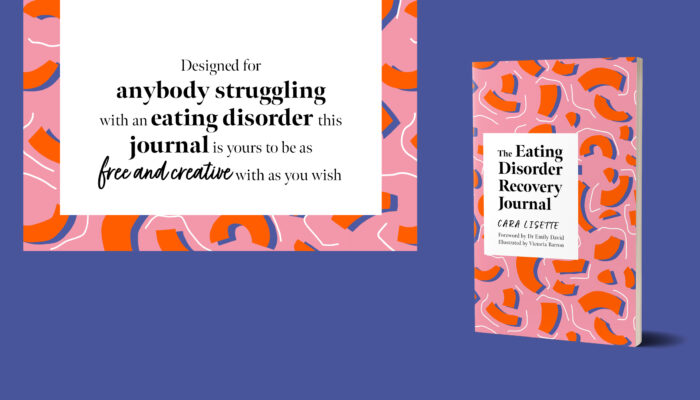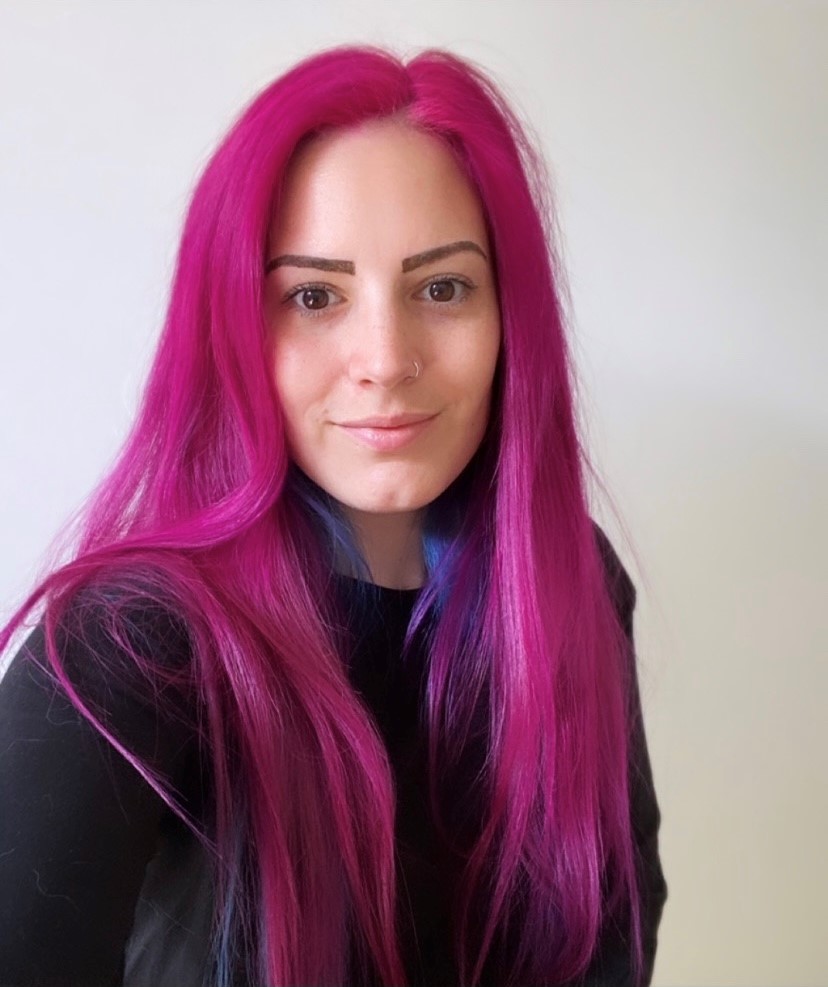
“It’s okay to accept myself as I am” – Q&A with Cara Lisette
Journaling the way to recovery …
With 19-years lived experience of anorexia, let’s hear from the social media and journaling aficionado, mental-health professional, and now–author of The Eating Disorder Recovery Journal, Cara Lisette.
Tell us about yourself!

By background, I am a mental health nurse and children’s cognitive behavioural therapist. Personally, I have 19-years lived experience of anorexia and various forms of treatment including multiple therapies, day patient and inpatient treatment. I have a lot of experience of public speaking around my eating disorder including through charities and independently, and have presented at schools, NHS services and conferences.
I also have an active social media presence that is focused on raising awareness of eating disorders and sharing my recovery. I have featured on several podcasts and national news outlets talking about eating disorders over the years and trying to raise awareness, challenge stigma and support people with eating disorders to get the care and support they need is a big passion of mine.
What was the inspiration behind your book?
I was inspired to write this book after journaling my way through my most recent episode of treatment. I found it incredibly therapeutic but the most valuable part has been having a resource that I can look back on whenever things feel difficult so I can remind myself of my progress and also prompt myself to use strategies and techniques that I know have been helpful to me and my ongoing recovery. I know how difficult it can be to access formal support and I wanted to give people a resource that could help them with their recovery no matter what stage on the journey they are at, as well as providing a lifelong reminder of that journey.
What might you suggest to someone who wants to support a loved one with an eating disorder but isn’t sure where to start?
Asking people around you for support when you have an eating disorder, which are often secretive and carry a lot of shame, can be incredibly difficult. I have a couple of exercises in my book that helped me to do this. Firstly, I was trying to work out how I used my anorexia to communicate with others and how it impacted those relationships. There is also an activity that involves making a list of all the people around you that can help you, including family, friends, and others in your support network like professionals and colleagues for example. Lastly, there is a page for recording what specifically would be helpful from people, and what you might also find unhelpful.
For me, working out what I did and didn’t want people to do was a key part of communicating with them about my eating disorder, and it was also helpful for them to know what were maybe the right or wrong things to be doing. The most important thing is to not be afraid to ask the person directly what they want and need.
If you are looking to support somebody with an eating disorder and aren’t sure how, Beat (the leading UK eating disorder charity) are a great resource.
Is there a quote, mantra, or coping statement you find yourself returning to over and over?
There are lots of quotes I find really helpful, a lot of which are scattered through the book as colouring pages or illustrations. The one I find myself repeating the most is: you are never too much, but you’re always enough. It reminds me that I am good enough as I am and that I don’t need to change myself to please other people. It’s okay to accept myself as I am, a flawed human like everyone else who is trying their best
Finally, as your book describes, music can be a wonderful tool for recovery! Could you share your ultimate recovery song, artist, or album that motivates you?
My ultimate recovery song is Power by Bastille. I also really like Learn to Let Go by Kesha
Don’t miss Cara’s JKP Instagram takeover on Wednesday 27th April! The Eating Disorder Recovery Journal is also now available to order.